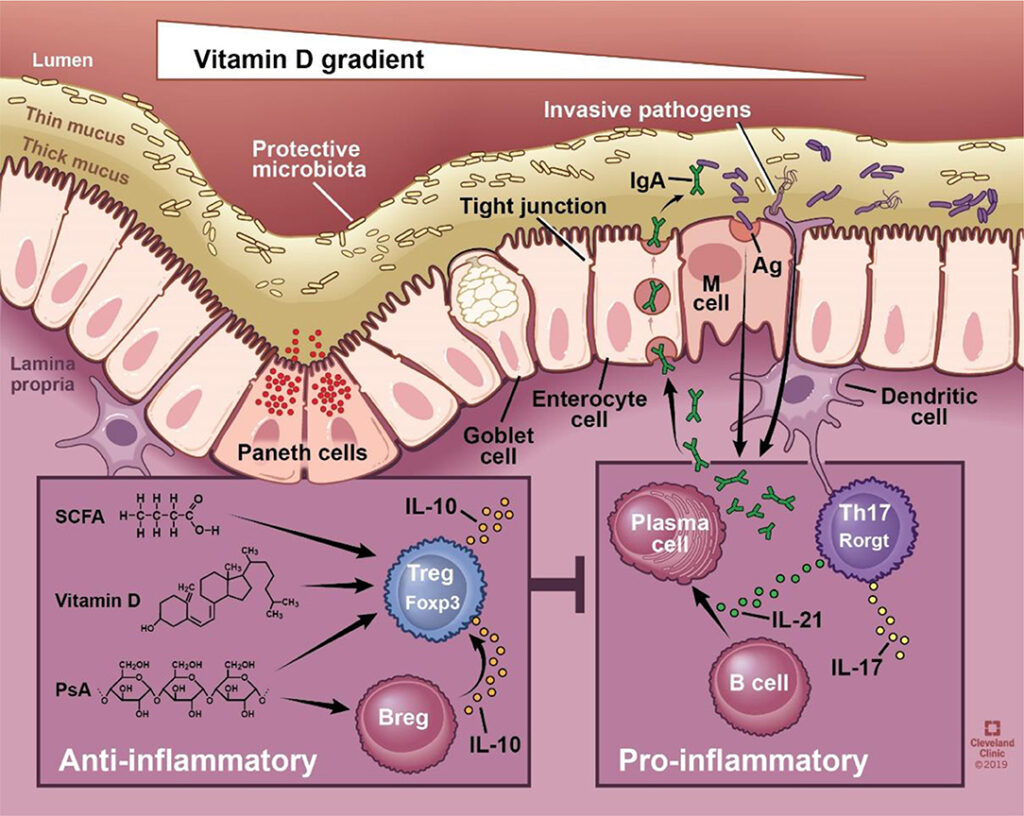Shorter days, less sunshine, colder temperatures, it’s winter! A weakened immune system, mood changes, Seasonal Affective Disorder (SAD) could there be a connection? A gut feeling perhaps? More bloat and stomach issues? Actually, yes, there is a connection. And your Vitamin D levels play a role.
Vitamin D has a role in the gut microbiome and keeping the good bacteria in balance with the bad. It does so by being involved in multiple pathways that maintain gastrointestinal health as well as helps maintain the physical and functional integrity of the gut mucosal barrier by reducing permeability of epithelial cells and modulating tight-junction proteins. Without a balance the bad bacteria takes over, causing what is known as dysbiosis. So Vitamin D aids in the health of the microbiome as well as the intestinal barrier and thus lower levels of Vitamin D can lead to the intestinal barrier becoming weakened, leading to leaky gut. And the gut is important for so many functions, importantly immune health but also mental health.

Vitamin D is called the sunshine vitamin because when UVB rays hit our skin, our bodies do a conversion into Vitamin D. This and also well-known as a great support for bone health, regulating calcium and phosphorus uptake. But Vitamin D also contributes to the health of our heart and as mentioned above your GI tract which is what I want to focus on in this post.
Sunshine and Vitamin D
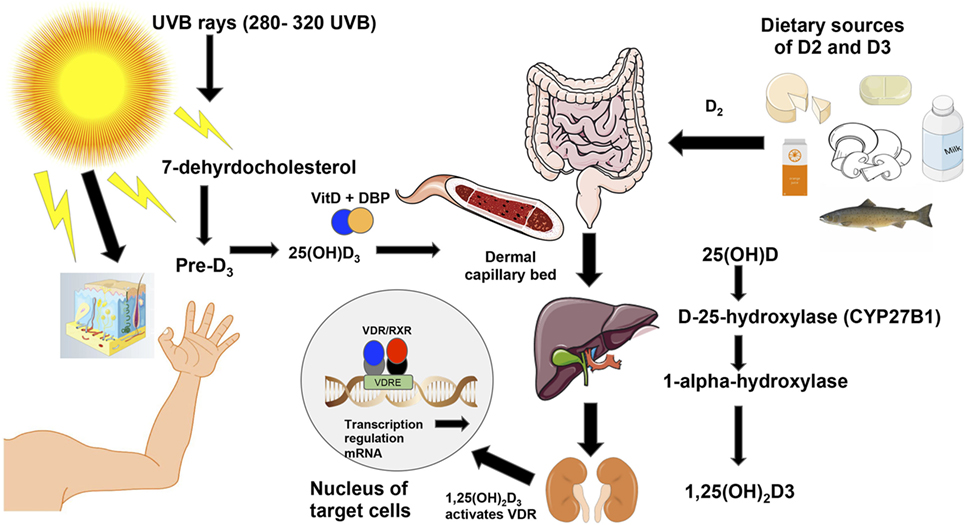
During winter, we can become more deficient in Vitamin D simply because a good amount of the absorption comes from UVB rays. There is a conversion in our body that allows for a usable Vitamin D in our bodies. You need the sun high in the sky for your body to effectively absorb sunlight to absorb the vitamin D. Summer months indeed, but winter months, the sun only rises so high before setting. Having the sun shining on your face but also your hands and maybe feet if you want to head out and do some grounding with the Earth, counts as sufficient exposure. In the cold, being fully dressed in winter gear, gloves, hat and face coverings, you will not get the same level of UV and vitamin D absorption. As you can imagine, Vitamin D deficiency is prominent in people who spend a lot of time indoors limiting life outdoors.
Gut Health and Vitamin D
Vitamin D is important for maintaining tight junctions. Vitamin D in high levels and even taken as in a supplementation form was found to strengthen the intestinal barrier by reducing permeability. Multiple studies found that vitamin D3 and the signaling from Vitamin D Receptor (VDR) genes aids in the tight junction protein quantity and distribution, keeping our gut healthy! Graphic below showing as the Vitamin D levels decrease, inflammatory responses increase as the tight junctions are now weak and toxins are able to be released into the blood.
Our health and well-being really starts in the gut, we must be well-nourished for our Whole Well-Being. Vitamin D is one of the many factors that helps keep the microbiome healthy and balanced.

When we aren’t getting enough Vitamin D, the gut microbiota can become altered. Below you can see a great graphic showing all the different bacteria strands that exist in out gastrointestinal tract. The gut microbiota responds to Vitamin D with an antibacterial effect being associated with expression of AMPs or antimicrobial peptides. These peptides act against not-so-good-for-us microorganisms, including bad bacteria. AMPs have been known to be anti-bacteria, anti-fungi, anti-virus, and anti-cancers, and even in some studies showing to overcome bacterial drug-resistance. In addition, the fermentation that occurs from the bacteria in the gut microbiota allow for a health Vitamin D Receptor (VDR) expression.
What this means is that Vitamin D and the microbiota work together to contribute to a healthy gut homeostasis. Preventing pathogens from taking over and keeping inflammation down or aiding as an anti-inflammatory. Probiotics can increase VDR expression and activity as well.
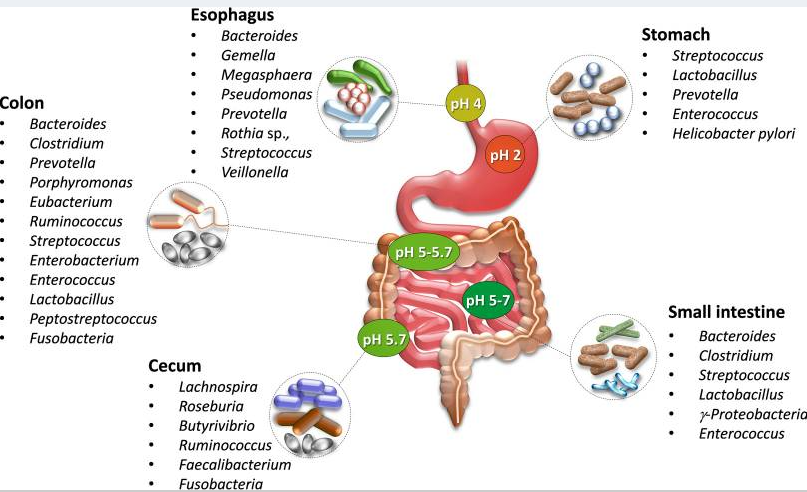
https://www.ncbi.nlm.nih.gov/pmc/articles/PMC7322162/
So then if Vitamin D levels are cut short, bad bacteria can take over, dysbiosis and leaky gut are a result with then an increase in inflammation. Gut health and your immune system are highly connected as 70 percent of the immune system is found in the gut! Once the toxins are able to be released into your bloodstream a host of health issues can result.
Do you ever think about why during the fall many start to crave more cheeses, perhaps more dairy and even more fermented foods? Your gut is telling you from its ancestry lineage it knows the days are going to get shorter and you need to stock up your Vitamin D levels. Vitamin D is a fat soluble vitamin so pairing it with fats is a way for your body to better absorb it.
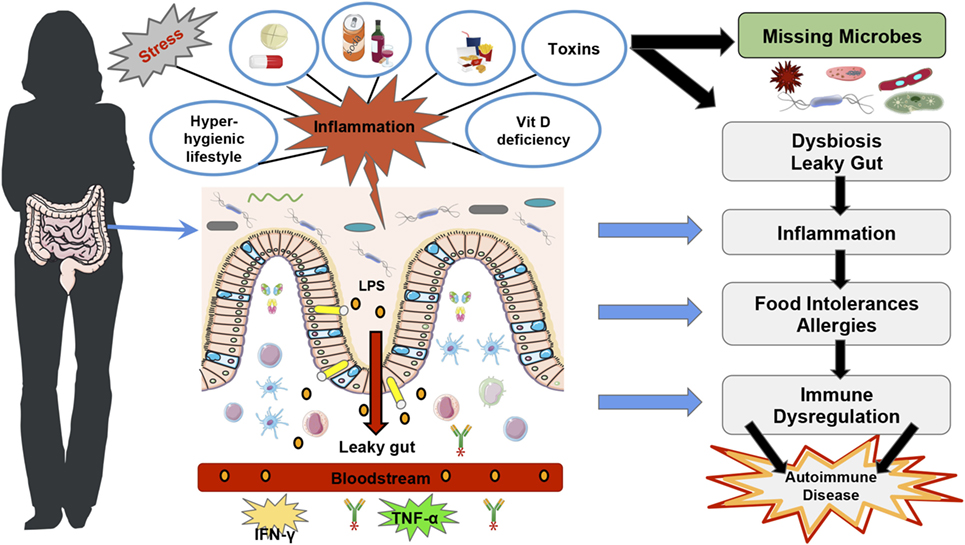
A SAD Gut
Now consider the gut-brain-axis. And even the microbiota gut-brain-axis. Individuals with depression have been associated with dysbiosis of their microbiome and also inflammation. With a healthy microbiome, as mentioned above relating to immune function, the gut has more resistance against outside stressors allowing for a lower risk of depressive symptoms. Recall 70% of our immune system starts in out gut, well about 90% of our body’s serotonin is made in our gut. Serotonin is the neurotransmitter in your brain that makes you happy. The bacterial enzyme tryptophanase is involved in the conversion of tryptophan which is further converted into serotonin. Dysbiosis can alter this conversion.
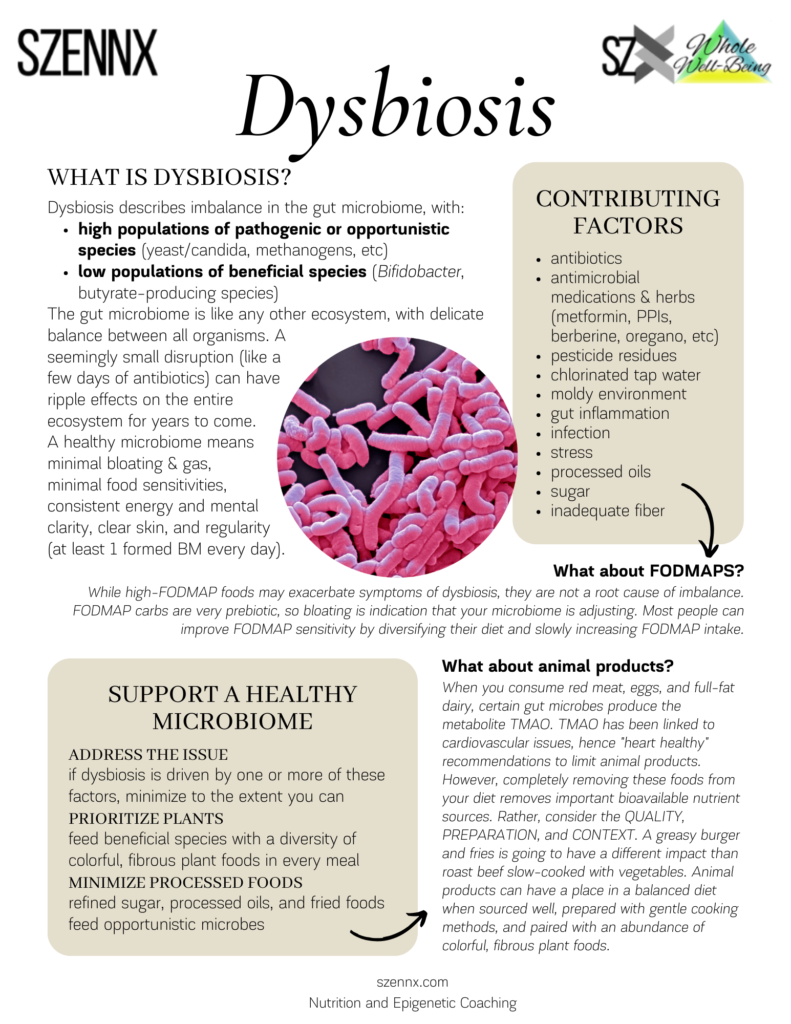
SZENNX Epigenetics and Vitamin D Genes

Genetically there are some individuals that do not convert Vitamin D from sunlight efficiently. This means they need to be adding more Vitamin D rich foods into their daily eating routine such as fish and dairy and look for a trusted supplement that offers Vitamin D3. Supplementing with cod liver oil is a good source. And although the conversion may not be as ideal as one would hope, spending more time in the sunlight is helpful. Outdoor activities throughout the day such as running and skiing, snowboarding and sledding, fat tire mountain biking and snowshoeing. Sitting around an outdoor fire having a Vitamin D rich lunch of salmon or mackerel is a great way to get some winter rays on your skin and intake of Vitamin D. Even snowmobiling is great but with some of these activities you’ll need to take a trail break and remove some layers to get some sunshine on the skin. Hard-boiled egg, nuts and cheese for a Vitamin D snack.

Being deficient in Vitamin D also means inhibiting the uptake and absorption of calcium and phosphorus. Great sources of vitamin D is whole foods, especially fatty fish like salmon and also trout. Mushrooms, while milk and eggs. Vitamin K works synergically with Vitamin D meaning they help each other in their uptake and absorption.
Go to SZENNX.com to get started with your genetic report that comes with Epigenetic Coaching so you can understand if your body needs a boost in Vitamin D and receive a meal guide tailored specifically to your needs.

Go to SZENNX.com to get started with your gene report and epigenetic coaching.

References:
https://www.ncbi.nlm.nih.gov/pmc/articles/PMC10251798/VitaminD
https://www.frontiersin.org/articles/10.3389/fimmu.2019.03141/full#B126
https://www.sciencedirect.com/science/article/pii/S000294402300055X
https://www.ncbi.nlm.nih.gov/pmc/articles/PMC5613455/
https://www.ncbi.nlm.nih.gov/pmc/articles/PMC10146621/

